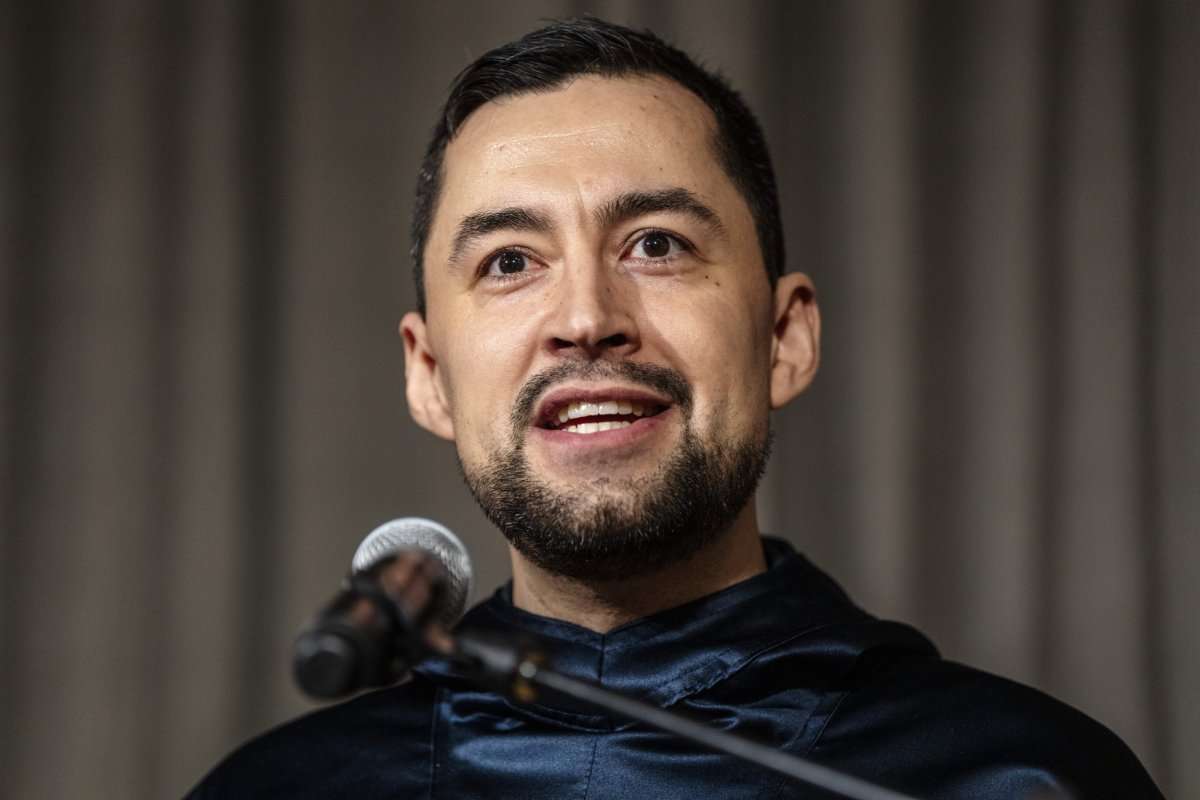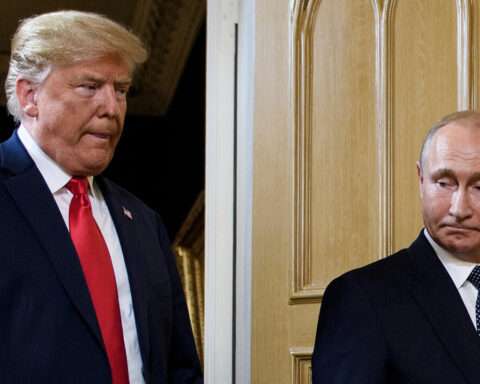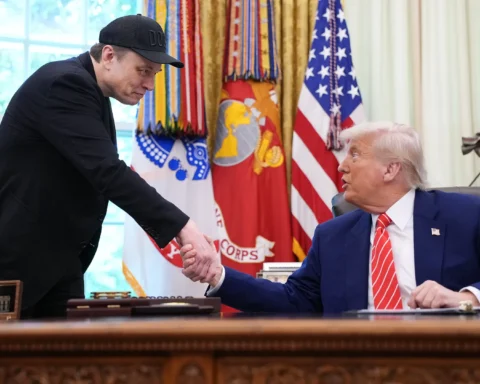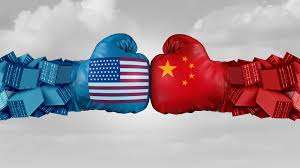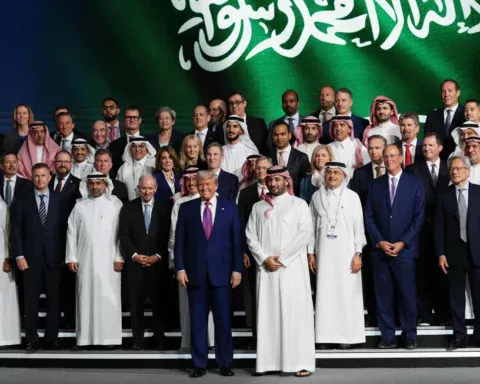Greenland’s Prime Minister, Múte B. Egede, has sharply criticized a visit by senior U.S. officials, including Second Lady Usha Vance and National Security Adviser Mike Waltz, calling it “extremely aggressive.”
The rebuke reflects growing unease over President Donald Trump’s renewed push to assert influence over the autonomous Danish territory, a move Greenlandic and Danish leaders have fiercely resisted.
Amid a backdrop of strategic interests in the Arctic and Trump’s longstanding ambition to annex Greenland, Egede’s comments signal a deepening rift, with high-ranking politicians on both sides weighing in on a diplomatic row that threatens to reshape regional dynamics.
The controversy unfolded as Greenland grapples with its political future following recent parliamentary elections. On March 24, 2025, the island stands at a crossroads, balancing its quest for greater independence from Denmark with mounting pressure from the United States.
Egede’s remarks, delivered during an interview with Greenlandic outlet Sermitsiaq, underscore a broader sentiment of defiance. “This visit is not about goodwill—it’s a blatant display of American dominance,” he said, pointing to the timing of the delegation’s arrival during Greenland’s sensitive post-election negotiations as evidence of U.S. insensitivity.
A Delegation with Ulterior Motives
The U.S. contingent, which arrived aboard a military aircraft, includes Usha Vance, wife of Vice President JD Vance, alongside Waltz and Energy Secretary Chris Wright. Officially billed as a cultural engagement, the visit features Vance attending the Avannaata Qimussersu dogsled race and touring historical sites. Yet, the presence of Waltz—a key architect of Trump’s security policy—has raised eyebrows. White House spokesperson Karine Jean-Pierre defended the trip, stating, “This is about strengthening ties and celebrating Greenland’s unique heritage.” However, Greenlandic officials see it as a thinly veiled attempt to advance Trump’s territorial agenda.
Jens-Frederik Nielsen, poised to succeed Egede as prime minister after his party’s electoral win, condemned the visit’s timing. “The U.S. knows we’re in the middle of forming a government and holding municipal elections. This is deliberate disrespect,” he told Sermitsiaq. Across the Atlantic, Danish Foreign Minister Lars Løkke Rasmussen expressed measured concern, telling Reuters, “We welcome dialogue with our American allies, but it must respect Greenland’s autonomy and our shared principles.” The comments reflect a unified front against what many in Greenland and Denmark perceive as U.S. strong-arming.
Greenland’s Prime Minister Criticizes “Extremely Aggressive” U.S. Visit
Egede’s description of the visit as “extremely aggressive” is rooted in a years-long saga of U.S. interest in Greenland. Since his first term, Trump has fixated on acquiring the island, citing its strategic location and mineral wealth. In a March 2025 address to Congress, he reiterated his intent, declaring, “Greenland will be ours—it’s a matter of national security.” Egede, a vocal proponent of Greenlandic independence, dismissed such rhetoric as imperialistic. “Trump’s administration sees us as a prize to be claimed, not a people with rights,” he told Sermitsiaq. “Their diplomacy is a wall we cannot penetrate.”
High-ranking U.S. figures have doubled down on Trump’s stance. Vice President JD Vance, speaking at a rally in Ohio last week, called Greenland “vital to America’s future,” hinting that economic incentives—or pressure—could sway the outcome. National Security Adviser Waltz, meanwhile, framed the visit as a chance to “secure U.S. interests in the Arctic,” according to a Fox News interview. These statements have only fueled Egede’s assertion that the delegation’s presence is less about culture and more about coercion.
The Arctic’s Geopolitical Chessboard
Greenland’s allure lies in its position and resources. Straddling North America and Europe, it hosts the U.S.-run Pituffik Space Base under a Denmark-NATO agreement, while its untapped reserves of rare earth minerals—essential for technology and defense—draw global attention. Trump’s obsession traces back to 2019, when his initial purchase offer was rebuffed by Danish Prime Minister Mette Frederiksen as “absurd.” Now, in his second term, he has escalated the rhetoric. In a February 2025 Oval Office meeting with NATO Secretary General Mark Rutte, Trump mused, “We’ve got Russia and China circling—Greenland’s too important to leave alone.” Rutte sidestepped the issue, wary of entanglement.
European leaders have voiced unease. German Chancellor Olaf Scholz, speaking at a Berlin press conference, warned, “Sovereignty is not negotiable. The U.S. must tread carefully.” French Foreign Minister Jean-Noël Barrot echoed this, telling CNN, “Any hint of coercion risks destabilizing the Arctic.” Their comments highlight broader fears of a U.S.-led power grab, with Greenland caught in the crosshairs of competing superpowers.
Denmark’s Diplomatic Dilemma
Denmark, Greenland’s historical overseer, faces a complex challenge. While it ceded significant autonomy to Greenland in 2009, it retains authority over defense and foreign affairs. Frederiksen, who clashed with Trump in January 2025 during a contentious call described by aides as “brutal,” has stood firm. “Greenland decides its destiny—no one else,” she told Danish broadcaster DR. Yet, she also seeks to preserve NATO unity, telling NBC, “We’ll work with the U.S. on security, but annexation is off the table.”
Rasmussen, Denmark’s foreign minister, has adopted a pragmatic tone. “The Americans have legitimate interests here—defense, resources—but they must respect the rules,” he said in a BBC interview. This balancing act reflects Denmark’s dual role as Greenland’s advocate and a U.S. ally, a tension exacerbated by Trump’s refusal to rule out tariffs or military posturing to force compliance.
Greenland’s Fight for Autonomy
For Greenlanders, the U.S. visit is a stark reminder of their precarious position. Egede’s push for independence, backed by most parties, hinges on economic self-sufficiency—a goal complicated by Denmark’s subsidies, which fund 60% of Greenland’s budget. A recent poll by Politiken and Sermitsiaq found 87% of Greenlanders reject U.S. ownership, with 48% viewing Trump’s interest as a direct threat. “We are not a bargaining chip,” Egede declared at a Nuuk rally. “Our land, our people, our choice.”
Still, some see opportunity. Nielsen suggested to CNN that Greenland could partner with the U.S. on mining or tourism, “but only as equals.” The visit has paradoxically strengthened Greenland’s leverage with Denmark, with calls for an independence referendum gaining momentum. “Trump’s aggression is waking us up,” said Aaja Chemnitz Larsen, a prominent Greenlandic MP, in an NBC interview.
Global Stakes and Uncertain Outcomes
The U.S. delegation’s actions this week could set the tone for years to come. If perceived as a success by Trump, it may embolden further pressure; if rebuffed, it risks alienating allies. Russia and China, both expanding their Arctic footprints, are watching closely. Kremlin spokesperson Dmitry Peskov told Fox News, “We respect Greenland’s sovereignty—unlike some.” Beijing, meanwhile, has quietly courted Greenland with investment offers, a move U.S. Senator Marco Rubio called “a wake-up call” on X.
As the dogsled race looms, the world awaits the fallout. Egede’s defiance, backed by a chorus of international voices, underscores a simple truth: Greenland will not yield easily. Whether this clash strengthens its resolve or draws it deeper into global power struggles remains to be seen.
Focus Keywords: Greenland Prime Minister, U.S. officials visit, extremely aggressive, Trump Greenland policy, Greenland autonomy, Arctic strategy, Múte B. Egede, Usha Vance, Mike Waltz, Denmark stance


